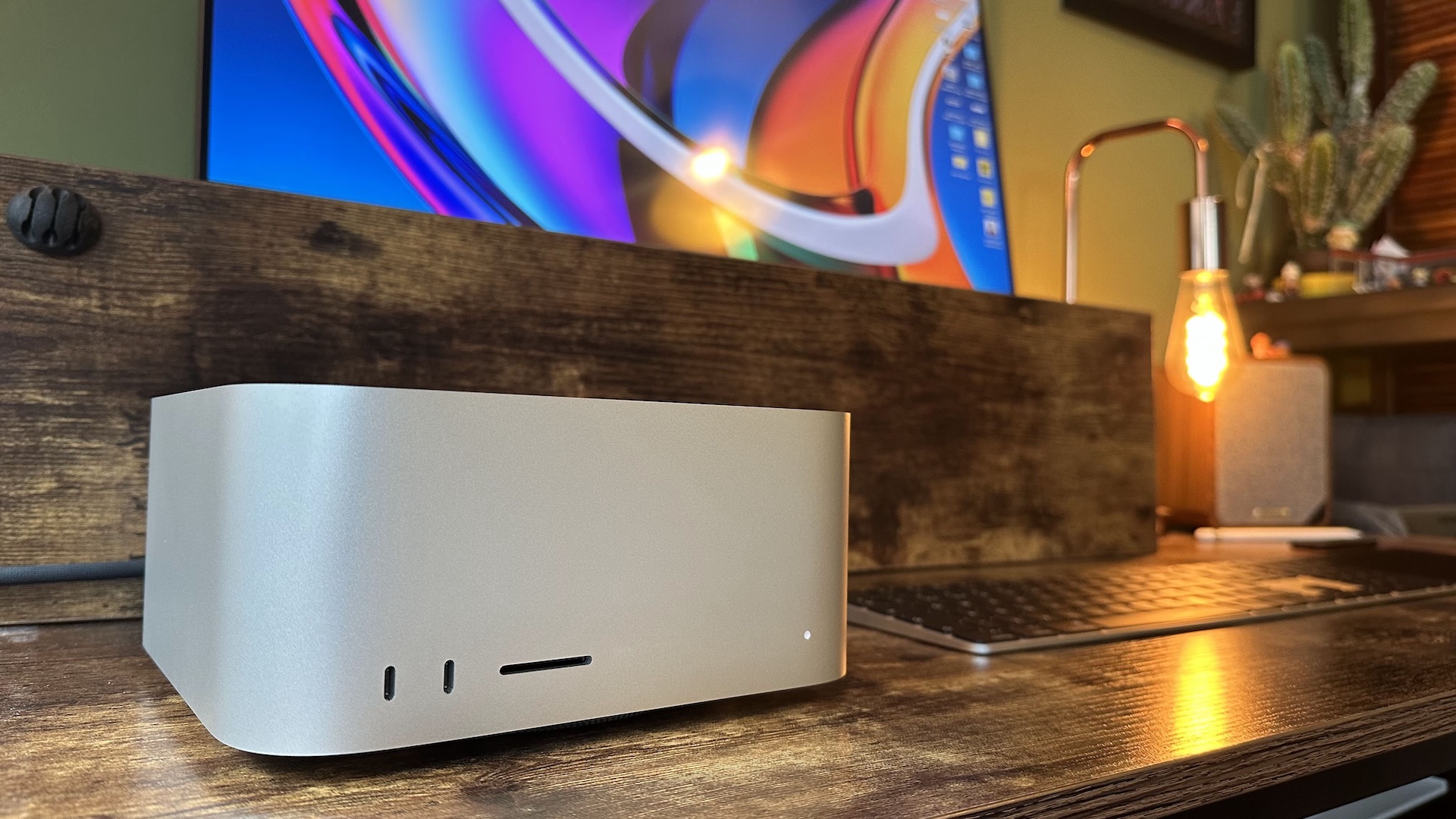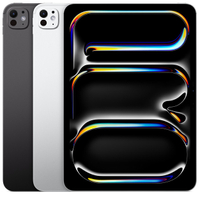Apple M4 benchmarks give us another reason to be excited about the 2024 Mac laptop and desktop lineups and beyond
These are some impressive figures.

When Apple announced the M4 iPad Pro earlier this month it brought an end to months upon months of rumors. Those rumors meant that we knew almost all there was to know about the new tablet, including its tandem OLED display and repositioned FaceTime camera. But there was one surprise — the debut of the M4 chip.
There had been a suggestion by Bloomberg's Mark Gurman that Apple could choose to skip the M3 entirely and move from the M2 iPad Pro to an all-new M4 variant, but it was far from confirmed. Until it was, of course, and the M4 is now proving itself to be a capable operator at the very high end of not only Apple's silicon lineup but also that of every other chip company, too.
Early benchmarks were positive before we saw Apple set a record in terms of Geekbench results. That all shows just how capable the M4 chip is, even when hamstrung by the iPadOS 17 software that has been around since September of last year. There is a hope that iPadOS 18, set to debut at WWDC next month and ship to the public this September, will make better use of all that power. But the real proof of the pudding will be in the various Macs that are yet to benefit from the M4 and TSCM's tweaked 3nm architecture. And I, for one, cannot wait to see what Apple has in store.
iPad Pro M4 | $999 $949 at Amazon
The newest and most powerful Pro models are also extremely new, and as always, any amount of discount is helpful when you’re looking to pick up such an expensive tablet. This $50 discount makes for the iPad Pros' lowest price yet.
I am SPEED
We now have a better understanding of just how fast the M4 is thanks to Geekbench's consolidating of the M4's benchmark results. That takes the many, many different benchmark results and smooths out the outliers to give us a better understanding of how the chip really performs.
The results are based on the 9-core M4, which means that there is extra headroom to be attached to these scores when the 10-core chip is considered. But the 9-core scores a consolidated 3,694 in the Geekbench single-core tests and 13,405 in the multi-core tests. Those figures are impressive on their own, but it's when you compare them to older chips that things get most interesting.
A Reddit thread created by u/Balance- provides the numbers that suggest significant gains compared to the M2 and M1 chips that came before the M1. For comparison's sake, here's what those older chips managed.
- M1 — 2,279 single-core, 8,238 multi-core
- M2 — 2,582 single-core, 9,891 multi-core
In short, the M1 to M4 represents around a 62% speed increase across both single- and multi-core tests while the M2 to M4 represents around a 42% increase in single-core tests and 35% increase in multi-core.
Master your iPhone in minutes
iMore offers spot-on advice and guidance from our team of experts, with decades of Apple device experience to lean on. Learn more with iMore!
So what does this all mean for the Mac?
It means a few things — first, the Mac will likely make better use of the extra performance afforded by the M4. The iPad is great, but iPadOS and macOS are two different beasts as are the apps that they run.
But more importantly, this generational speed boost (ignoring the M3, but not all Macs ever got that anyway) suggests we can expect huge speed boosts when the M4 Pro, M4 Max, and above all, the M4 Ultra break cover. Any potential M4 Extreme could also be the workstation powerhouse that Mac Pro buyers are crying out for, too. There were rumors of an M3 Extreme previously, but there's little reason that couldn't roll over to an M4 variant.
We're still very early in the M4's lifecycle, but the early signs are good that we should be looking forward to what it can do inside a Mac. These M4 results are what an iPad can do when it doesn't have any active cooling, too, and we can expect fan-adorned Macs to maintain that performance for longer without the risk of thermal throttling.
Now imagine what an M4 Extreme with a giant heatsink and a massive fan might be capable of.
More from iMore

Oliver Haslam has written about Apple and the wider technology business for more than a decade with bylines on How-To Geek, PC Mag, iDownloadBlog, and many more. He has also been published in print for Macworld, including cover stories. At iMore, Oliver is involved in daily news coverage and, not being short of opinions, has been known to 'explain' those thoughts in more detail, too. Having grown up using PCs and spending far too much money on graphics card and flashy RAM, Oliver switched to the Mac with a G5 iMac and hasn't looked back. Since then he's seen the growth of the smartphone world, backed by iPhone, and new product categories come and go. Current expertise includes iOS, macOS, streaming services, and pretty much anything that has a battery or plugs into a wall. Oliver also covers mobile gaming for iMore, with Apple Arcade a particular focus. He's been gaming since the Atari 2600 days and still struggles to comprehend the fact he can play console quality titles on his pocket computer.

